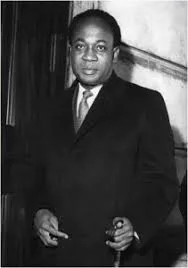Pan-Africanism is the attempt to create a sense of brotherhood and collaboration among all people of African descent whether they live inside or outside the African continent.
Pan-Africanism is the idea that peoples of African descent have common interests and should be unified. Historically, Pan-Africanism has often taken the shape of a political or cultural movement.
There are many varieties of Pan-Africanism. In its narrowest political manifestation, Pan-Africanists envision a unified African nation where all people of the African diaspora can live. (African diaspora refers to the long-term historical process by which people of African descent have been scattered from their ancestral homelands to other parts of the world.)
This world wide movement has its origins in the struggles of african people against enslavement and colonialism and may be traced back through constant plantation and colonial uprisings, in what was known as *take me back to Africa* uprisings of the 19th century Pan-Africanist intellectual, social and economic movement views all Africans and all descendants of Africa belong to a single or share a common cultural unity.
This pan-Africanist thought influenced the formation and establishment of the organization of African unity on 25th, May 1963 in Addis Ababa in Ethiopia. This organization had 32 signatories. The formation of this movement was spearheaded by Kwameh Nkrumah and Haile Selassie.
The main objectives of this new organization were to promote unity and solidarity among African state that was in post-independence error and also advocate for self-rule in African nations that we still under European colonisation.
Among the more-important Pan-Africanist thinkers of the first decades of the 20th century was Jamaican-born Black nationalist Marcus Garvey. In the years after World War I, Garvey championed the cause of African independence, emphasizing the positive attributes of Black people’s collective past.
With the independence of Ghana in March 1957, Kwame Nkrumah was elected as the first Prime Minister and President of the State Nkrumah emerged as a major advocate for the unity of Independent Africa. The Ghanaian President embodied a political activist approach to pan-Africanism as he championed the “quest for regional integration of the whole of the African continent”.
This period represented a “golden age of high pan-African ambitions”; the continent had experienced revolution and decolonization from Western powers and the narrative of rebirth and solidarity had gained momentum within the pan-African movement.
Nkrumah’s pan-African principles intended for a union between the Independent African states upon a recognition of their commonality (i.e. suppression under imperialism).
Pan-Africanism under Nkrumah evolved past the assumptions of a racially exclusive movement associated with black Africa and adopted a political discourse of regional unity.
Although Pan-Africanism called for unity between all those of African ancestry, it missed out on almost half of these people by overlooking women’s contribution.
In the book Pan-Africanism History: Political Figures from Africa and the Diaspora since 1787, mentioned forty Pan-Africanists, of which only three were women.
Due to the lack of representation paid to women in Pan- Africanism, Clenora Hudson-Weems coined the term Africana Womanism in the 1980s, which is an ideology that specifically focuses on black women’s achievements and gains.
In the next episode, the focus will be put on the role played by women in spreading the pan-Africanism movement.
Kamukama Rukundo Clinton is a Ugandan freelance journalist, book author and pan Africanist.
Revised by *Kamukama Rukundo Clinton* (rukundopeter33@gmail)















































